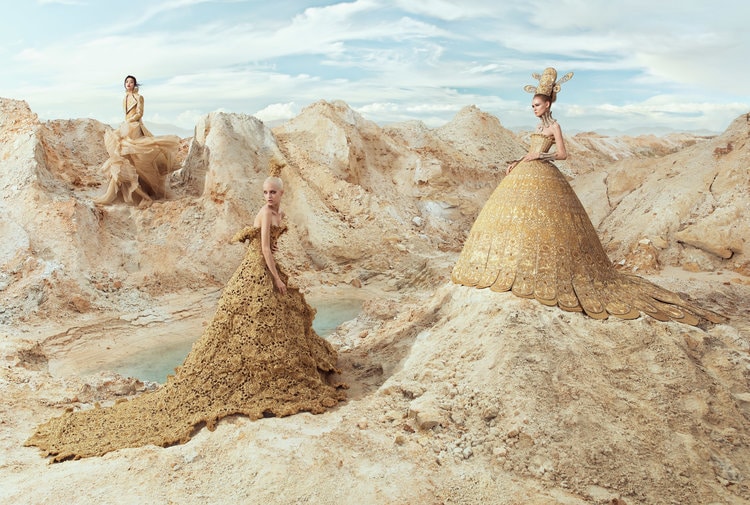Looking at Lenses: Telephoto
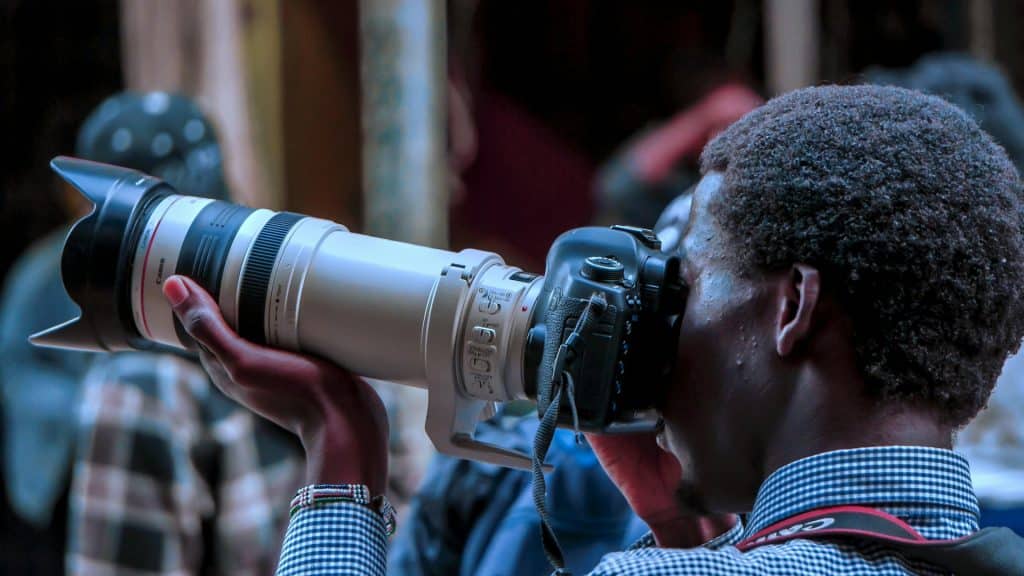
A telephoto lens allows photographers to take shots that feel very close and intimate, despite large distances between photographer and subject. This makes them a popular choice amongst wildlife, sports, and wedding photographers, who often need to capture a moment without making their presence known. Perhaps the greatest strength of a telephoto lens is its ability to remove the photographer from the photo. Lenses with shorter focal lengths require that the photographer be closer to the subject, and with the subject aware of the photographer’s presence, candid shots become near impossible. Due to their size, telephoto lenses may scream, “I’m taking a photo!” to those in close proximity, but when your subject is a ways away, allow for strikingly intimate, candid shots.
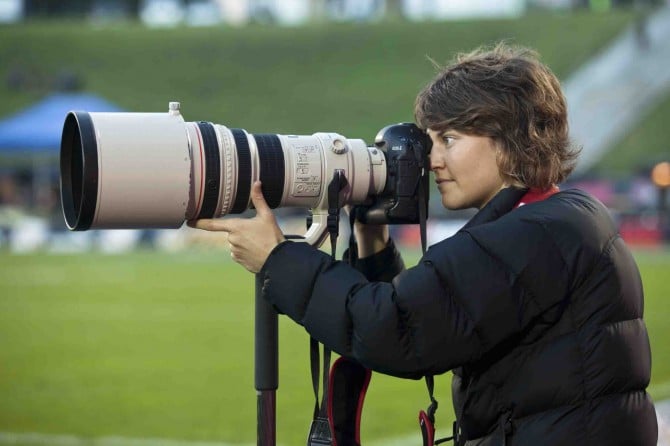
Telephoto lenses are also a very popular choice amongst portrait photographers. Due to the way lenses operate, each focal length has an inherent degree of distortion to it. A 50mm lens most closely replicates the field of view of a human eye, and as such, has a similar degree of distortion. This distortion radiates outwards from the center of the image and is most apparent near the edges of the frame. At a proper distance from the subject, lenses with shorter focal lengths can be used to take portraits without noticeable distortion. The problem is, at these lengths, the subject will appear small in frame, leaving the photographer with the choice of either cropping the image and losing resolution, or moving closer to the subject and introducing perspective distortion. Either can make for an unflattering portrait.
Telephoto lenses offer a more narrow field of view, allowing the photographer to fill the frame with the subject without being so close as to introduce distortion. In the photos below, the photographer has used a variety of focal lengths while keeping the head at the same relative size. Notice how at smaller focal lengths, there is an obvious distortion. This is the result of perspective. Because the photographer is so close to the subject, the relative distance of the subject’s nose from the lens is much closer than that of his ears, and this difference is greatly exaggerated. With more distance between photographer and subject, this effect is non-existent.
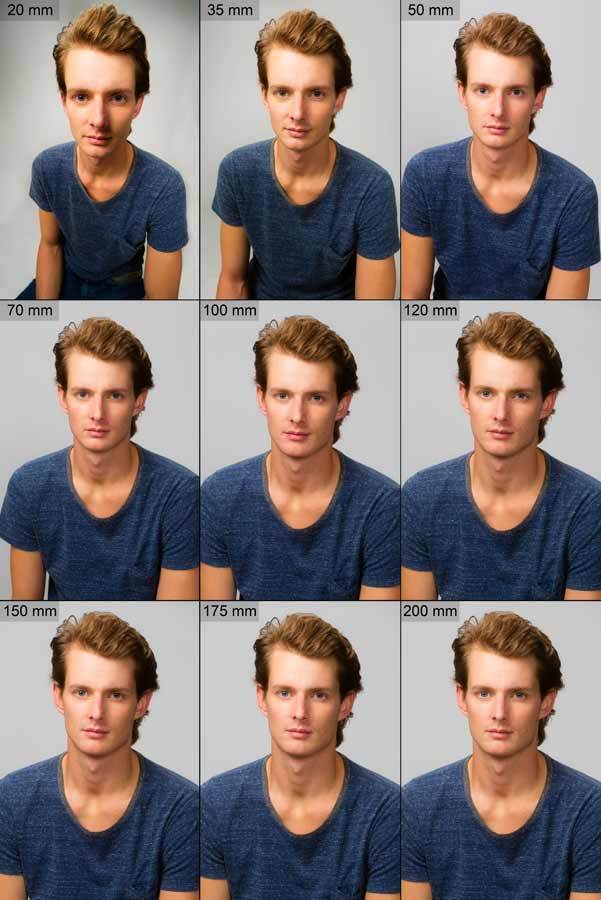
Telephoto lenses make for a great choice in a variety of situations, but they also come with their own set of unique challenges. Namely, their size and price. Telephoto lenses can be very heavy, and their large size makes them an unlikely daily carry. They are also relatively limited in application. Without professional cause, it can be hard to find situations to use them frequently enough to justify their high price tags.
Prime lenses, or those without zoom, typically have smaller maximum apertures, allowing more light into the sensor, and faster shutter speeds. Fast shutter speeds are important for sports and wildlife photography where a millisecond can be the difference between a great photo and one that’s just alright. However, because they can’t zoom, in order to change the composition, the photographer themselves need to move.
Changing their orientation to the subject until they have the shot they want. While this is fine in a studio situation, where the photographer is in control of the subject and lighting, for wildlife, sports, and wedding photographers, this could cost them the shot. For these types of photography, zoom telephoto lenses offer them the flexibility to quickly adjust their compositions without missing the moment. There is always a trade-off though, and with this flexibility often comes a larger maximum aperture, limiting the lighting situations the lens can effectively be used in.
Lens choice will depend largely on proximity to the subject, as well as personal preference. Beyond just the practical reasons for choosing a lens, different focal lengths allow you to tell a different story with your photo. If you’re just starting out, a zoom lens is a great place to experiment and get a feel for your preferences. You may find yourself shooting at certain focal lengths more than others, and from there, you can start to experiment with primes. Camera lenses are expensive and it’s always best to borrow if possible before taking the plunge on some expensive glass.
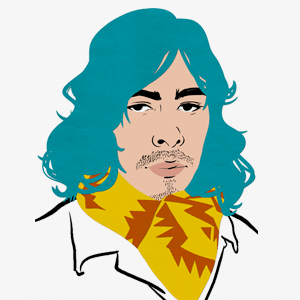
Taylor is a concept artist, graphic designer, illustrator, and Design Lead at Weirdsleep, a channel for visual identity and social media content. Read more articles by Taylor.
ENROLL IN AN ONLINE PROGRAM AT SESSIONS COLLEGE:
























